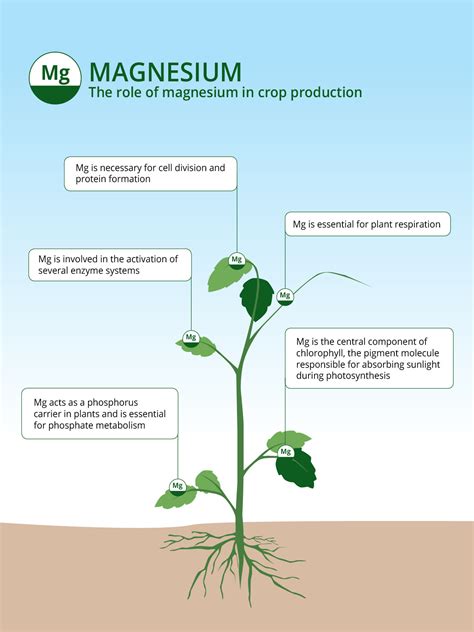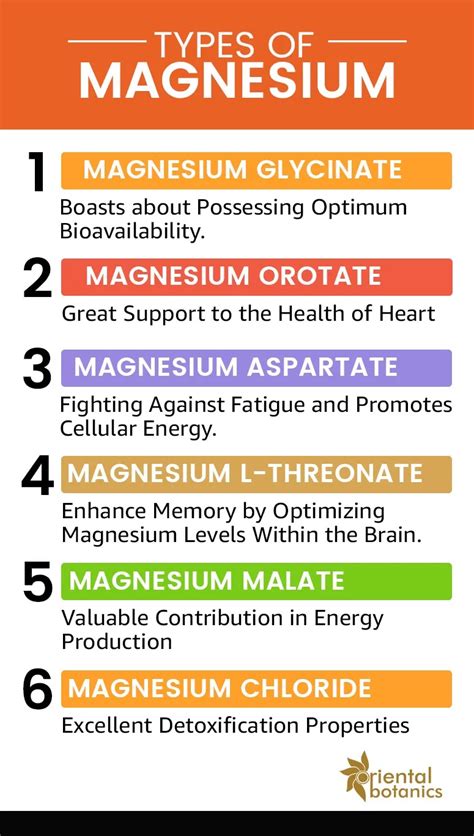Intro
Discover how magnesium impacts energy levels, reducing fatigue and boosting vitality through its effects on metabolism, ATP production, and muscle function, while alleviating symptoms of deficiency and promoting overall wellness.
Magnesium is often referred to as the "energy mineral" due to its crucial role in producing energy for the body. It is involved in over 300 biochemical reactions, including those that generate energy from the food we consume. Without sufficient magnesium, our bodies cannot function optimally, leading to a range of health issues, including fatigue, weakness, and decreased productivity. In this article, we will delve into the ways magnesium affects energy levels and why it is essential to maintain adequate magnesium intake.
The importance of magnesium in energy production cannot be overstated. It helps convert carbohydrates, fats, and proteins into energy, which is then used to power our bodily functions. Moreover, magnesium plays a critical role in the synthesis of ATP (adenosine triphosphate), the primary energy currency of the body. When magnesium levels are low, ATP production is impaired, leading to decreased energy levels and fatigue. Furthermore, magnesium helps regulate blood sugar levels, which is essential for maintaining stable energy levels throughout the day.
Magnesium deficiency is a common problem, affecting millions of people worldwide. The symptoms of magnesium deficiency can be subtle, but they often include fatigue, weakness, and muscle cramps. If left untreated, magnesium deficiency can lead to more severe health issues, such as osteoporosis, diabetes, and cardiovascular disease. The good news is that magnesium deficiency can be easily treated with dietary changes or supplements. By incorporating magnesium-rich foods into our diets and considering supplements when necessary, we can maintain optimal magnesium levels and support our overall health and well-being.
Role of Magnesium in Energy Production

Benefits of Magnesium for Energy
The benefits of magnesium for energy are numerous and well-documented. Some of the key benefits include: * Improved energy production: Magnesium helps convert food into energy, reducing fatigue and increasing productivity. * Enhanced athletic performance: Magnesium helps regulate muscle function, reducing cramping and improving endurance. * Better sleep: Magnesium helps regulate sleep patterns, leading to improved rest and recovery. * Reduced stress and anxiety: Magnesium has a calming effect on the nervous system, reducing stress and anxiety levels. * Improved cognitive function: Magnesium helps regulate neurotransmitter function, leading to improved focus and concentration.Ways Magnesium Affects Energy Levels

Magnesium-Rich Foods for Energy
Incorporating magnesium-rich foods into our diets is essential for maintaining optimal magnesium levels. Some of the best magnesium-rich foods for energy include: * Dark leafy greens: Spinach, kale, and collard greens are all rich in magnesium. * Nuts and seeds: Almonds, cashews, and pumpkin seeds are all good sources of magnesium. * Legumes: Black beans, chickpeas, and lentils are all rich in magnesium. * Whole grains: Brown rice, quinoa, and whole wheat bread are all good sources of magnesium. * Fish: Salmon, mackerel, and halibut are all rich in magnesium.Supplementing with Magnesium for Energy

Types of Magnesium Supplements
There are several types of magnesium supplements available, including: * Magnesium oxide: This is one of the most common forms of magnesium supplements, but it can be poorly absorbed by the body. * Magnesium citrate: This form of magnesium is highly bioavailable and easily absorbed by the body. * Magnesium glycinate: This form of magnesium is highly absorbable and has a calming effect on the nervous system. * Magnesium L-threonate: This form of magnesium is highly absorbable and has been shown to improve cognitive function.Conclusion and Next Steps

Final Thoughts
In final thoughts, magnesium is a vital nutrient that plays a critical role in energy production. By understanding the ways magnesium affects energy levels and incorporating magnesium-rich foods into our diets, we can maintain optimal magnesium levels and support our overall health and well-being. Remember to always consult with a healthcare professional before starting any new supplements, and happy learning!What are the symptoms of magnesium deficiency?
+The symptoms of magnesium deficiency can include fatigue, weakness, muscle cramps, and decreased energy levels.
How can I increase my magnesium intake?
+You can increase your magnesium intake by incorporating magnesium-rich foods into your diet, such as dark leafy greens, nuts, and seeds. You can also consider taking magnesium supplements after consulting with a healthcare professional.
Can magnesium supplements interact with other medications?
+Yes, magnesium supplements can interact with other medications, such as blood thinners and antibiotics. It is essential to consult with a healthcare professional before starting any new supplements.
How much magnesium do I need per day?
+The recommended daily intake of magnesium varies by age and sex, but most adults need around 400-420 milligrams per day.
Can I get enough magnesium from food alone?
+Yes, it is possible to get enough magnesium from food alone, but it can be challenging. Incorporating magnesium-rich foods into your diet and considering supplements when necessary can help ensure you are getting enough magnesium.
We hope you found this article informative and helpful in understanding the importance of magnesium for energy production. If you have any further questions or would like to share your experiences with magnesium, please leave a comment below. Don't forget to share this article with your friends and family to help them learn more about the benefits of magnesium for energy.
